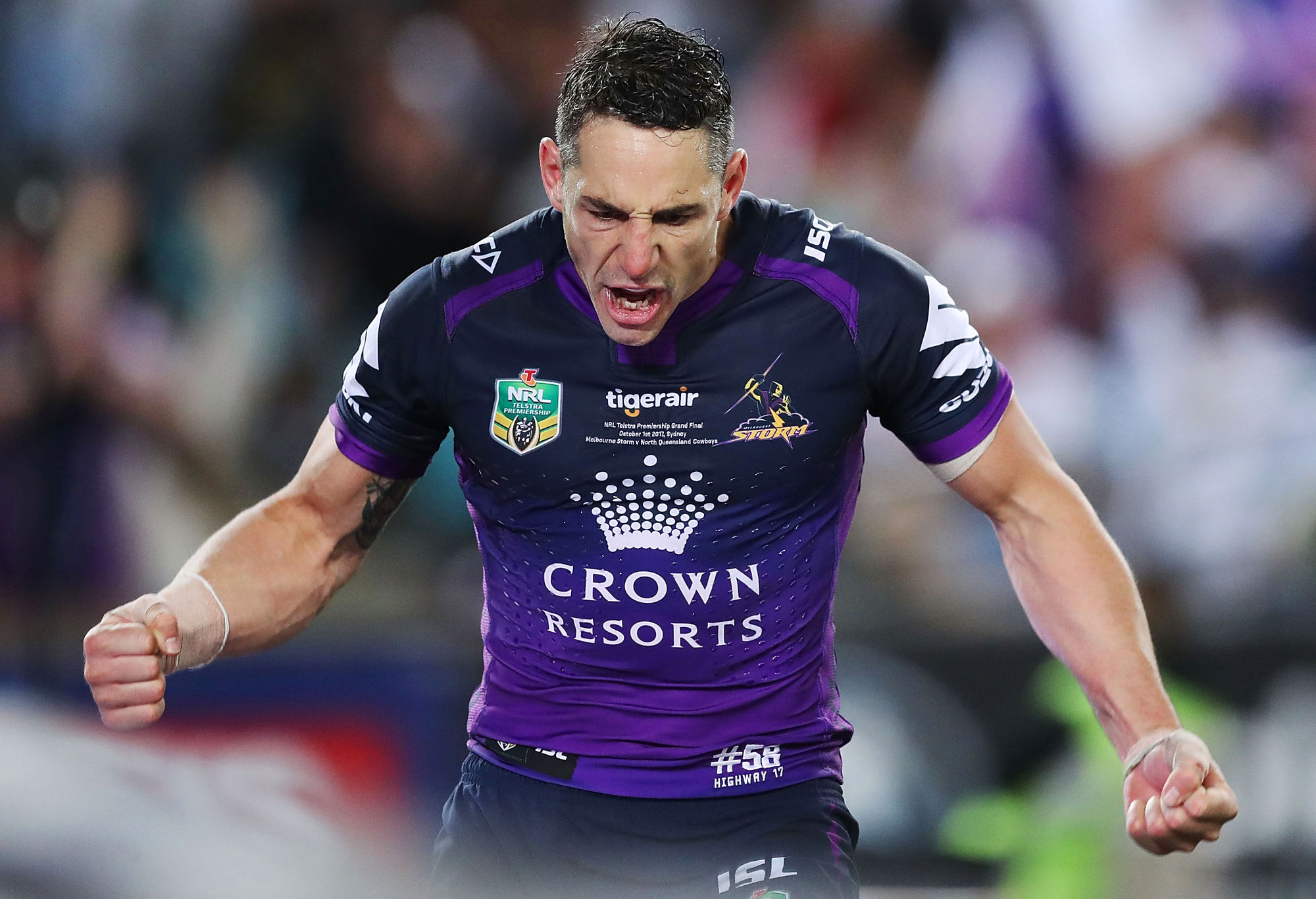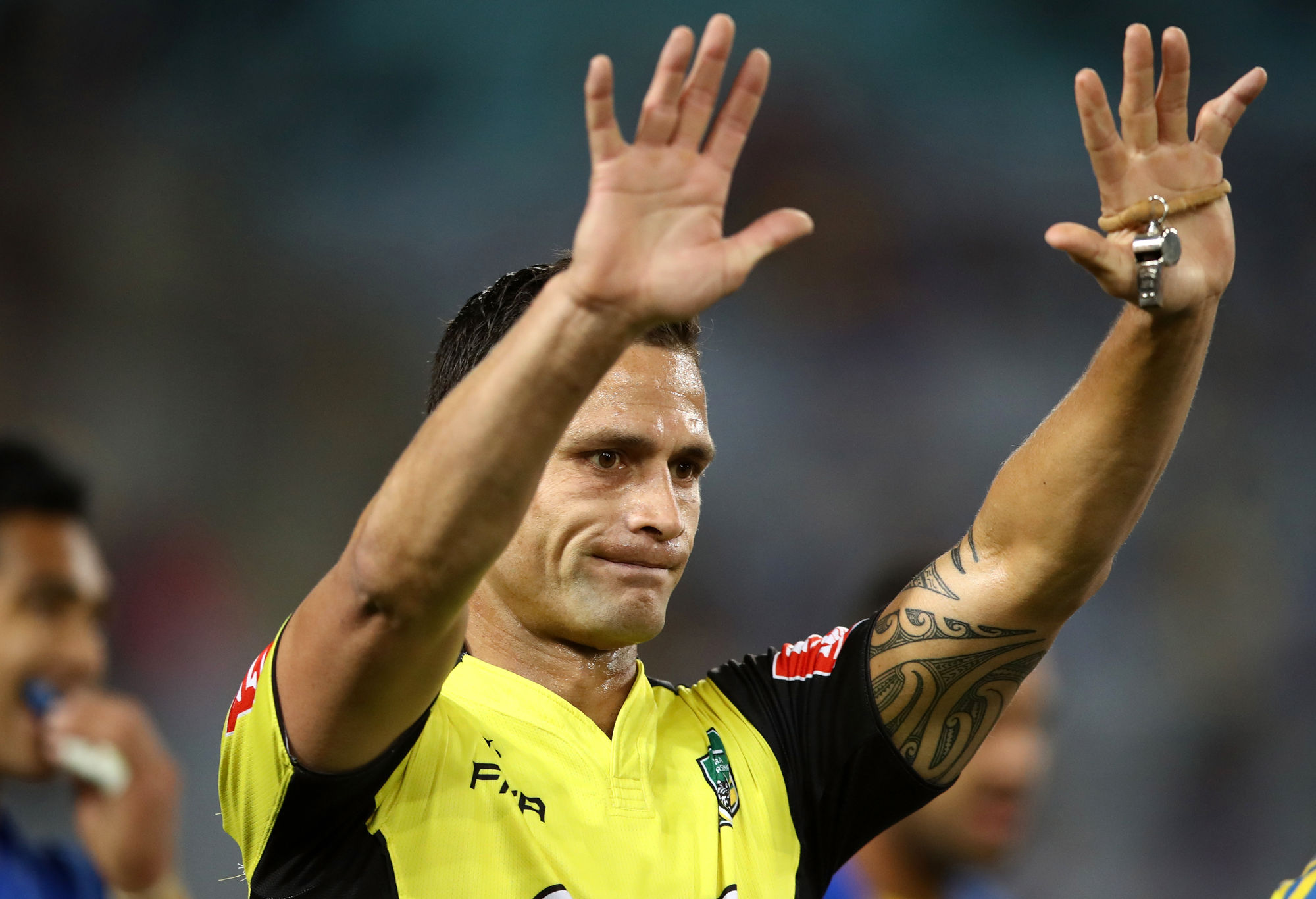Roar Guru
In some ways the NRL painted themselves in a corner with the shoulder charge, its interpretation and the associated penalties. The Billy Slater case has brought that to light.
1. The shoulder charge interpretation is still not quite right
For what it’s worth I think Slater’s tackle was a shoulder charge. The fact he got off because his body twisted and his right hand came up in the tackle is a technicality. It meant the judiciary got the decision right but that the interpretation still isn’t quite there.
The arm tucked against the body and no separation definition didn’t quite work and neither does this one. I think the definition should be tweaked slightly so that it captures what the player is doing with the arm of the shoulder that makes contact with the attacking player. Maybe it needs to be above a certain angle or maybe that hand or arm needs to make contact first.
2. The shoulder charge ban wasn’t trying to eradicate this type of tackle
The shoulder charge ban was about getting the brutal front-on shoulder charge out of the game, not this cover tackle variety. The forces from a front-on hit are far greater. We want players throwing themselves at attacking players and doing what they can to stop tries.
3. The gradings for shoulder charges are out of proportion
Players can avoid suspension with an early guilty plea for tripping, a careless high tackle, a dangerous throw, dangerous contact, contrary conduct and detrimental conduct, yet a shoulder charge of any variety carries a 200 point penalty.

(Mark Metcalfe/Getty Images)
This incident has shown that’s not appropriate. There should be a grading where a player can be found guilty of a shoulder charge but not face an automatic suspension. I’d suggest something like this:
There would have been far less outcry over this Slater incident if the judiciary could say, “Yes, it was a shoulder charge and he’s guilty, but it’s a grade one charge and that doesn’t carry a suspension”.
Jake Friend’s tackle and grading on Greg Inglis has barely caused a ripple. But when the NRL and judiciary start using technicalities to say something’s not a shoulder charge they start skating on thin ice and open themselves up to criticism from people who don’t know, don’t understand or just don’t care about technicalities.
Then we get to the issue of whether big games should carry the same weighting as week-to-week club games. The argument they should says it’s still just a game; the argument against says clearly they’re not.
Cameron Smith holds the record for most club games and most semi-final games. He’s played about 350 club games, 50 of which have been semi-finals. That suggests that semi-finals are weighted about 6:1. And Smith has played his career at a club that has played semi-final football far more often than not. For your average first grader the ratio would be far higher.
This is Smith’s seventh grand final of those 350ish games. That suggests that grand finals are weighted at about 50:1 of a player’s career. Way more for average Joe.

(Mark Kolbe/Getty Images)
To suggest that a player should have to receive a 50-week suspension to miss a grand final is ridiculous, but what if any minor charge that would result in a one-week suspension and a player missing a grand final, State of Origin match or a test could be served at a later date?
That would prevent players from missing big games, and don’t we want our best players playing in our biggest games? In the football World Cup they wipe a player’s yellow cards clear at the quarter-final stage for that exact reason.
The other argument against this sort of proposal is that it will see headhunters brought in to take opposition star players out and avoid suspension.
Well, no it wouldn’t. For starters, clubs an do that now – they can send out a lower grade numpty to knock Cooper Cronk’s head off, for example – but it just doesn’t happen. And under this proposal any significant charge that results in more than a week’s suspension would have to be served immediately.
So players found guilty of those hitman-style charges, like striking, kicking, shoulder charges or reckless high tackles, would still be rubbed out.
That way we have our best players playing in our biggest games, whether they’re Billy Slater, Luke Ricketson or Isaac Luke.
Anyway, for better or worse the decision on Slater has been made. Let’s get on with grand final week and enjoy the build-up to what should be a cracking game.